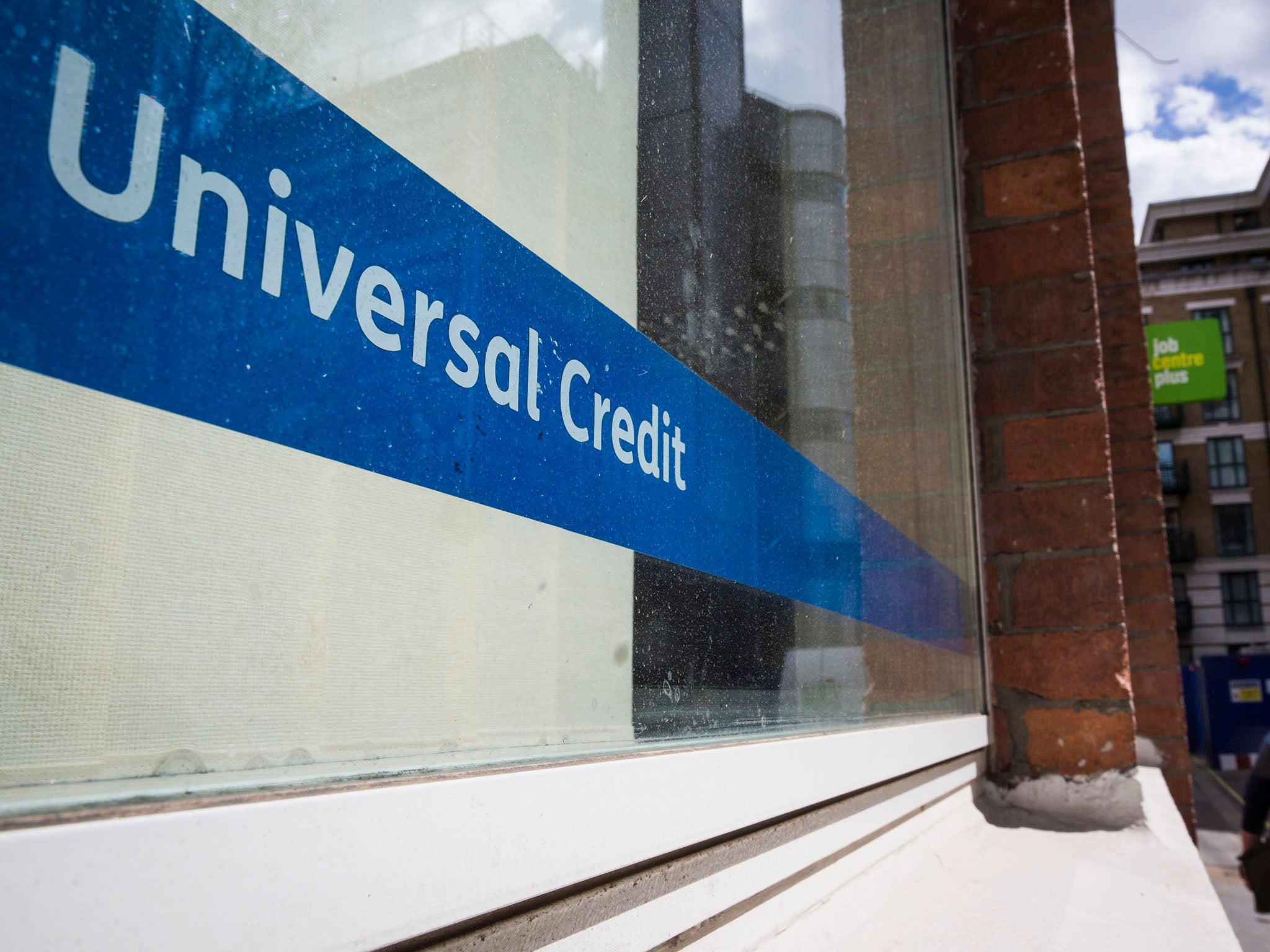Single mothers win landmark universal credit battle with government in High Court
Judge rules government 'wrongly interpreted' regulations in way payments are calculated

Four working single mothers have won a High Court challenge over the government’s controversial universal credit welfare scheme, which they say has left them struggling financially because of the way their payments are calculated.
Two judges in London announced on Friday that the women had succeeded in a judicial review action against the work and pensions secretary over the “proper method” of calculating the amount of universal credit payable to them.
The women argued that a “fundamental problem” with the scheme means their monthly payments vary “enormously” and they end up out of pocket.
Lord Justice Singh and Mr Justice Lewis said they had concluded that the “secretary of state had wrongly interpreted” the relevant regulations.
The women, who were represented by solicitors Leigh Day and Child Poverty Action Group (CPAG), all had monthly paydays that “clashed” with the dates of their monthly universal credit assessment periods.
This meant that if they were paid early some months, because their payday fell on a weekend or bank holiday for example, they were treated as receiving two monthly wages in one assessment period – dramatically reducing their award.
In addition to creating fluctuating universal credit awards, when the mothers received two pay cheques in one assessment period they lost the benefit of one month’s work allowance, which is worth hundreds of pounds each year.
The Department for Work and Pensions (DWP) refused to adjust the mothers’ assessment periods or to attribute monthly wages paid early to the actual assessment period in which they were earned, so as to enable them to avoid varying awards and cash losses.
During the court proceedings, the secretary of state argued that despite the hardship being caused, the way in which income was being assessed was lawful, it made sense given the automated nature of universal credit and that this was an issue which employers should remedy rather than the DWP.
Although the DWP also sought to justify its lack of action on the basis that there would be extra costs involved in making adjustments to its systems, the court was clear that it must comply with the regulations as correctly interpreted.
The judge said: “If the regulations, properly interpreted, mean that the calculation must be done in a particular way, that is what the law requires. We do not belittle the administrative inconvenience or the cost involved but the language of the regulations cannot be distorted to give effect to a design which may have proceeded on a basis which is wrong in law.”
The solicitors representing the women said that in light of the judgment, work and pensions secretary Amber Rudd must take immediate steps to ensure that no other claimants were adversely affected, and that she should ensure all those who have suffered because of this unlawful conduct are fairly compensated.
Tessa Gregory, solicitor from Leigh Day who represented the first claimant, Danielle Johnson, stated: “My client is a hard working single mum doing her very best to support her family. She is precisely the kind of person universal credit was supposed to help, yet the DWP designed a rigid income assessment system which left her £500 out of pocket over the year and spiralling into debt due to a fluctuating income.
“It is extraordinary that when this issue was first raised, the secretary of state did not act quickly to remedy the problem, instead choosing to fight these four women in court, arguing that the system was fit for purpose despite the hardship being caused to working families.
“This is yet another demonstration of how broken universal credit is and why its roll out must be stopped.”
CPAG’s solicitor Carla Clarke said: “Our clients have been doing everything they can to support themselves and their young children through work, but the rigid assessment system in universal credit has caused them untold hardship, stress and misery with them being forced repeatedly to manage on half of their usual total monthly income, despite their fixed outgoings remaining the same.
“They have each ultimately questioned why they are even working. That it should have required them to go to court to challenge the DWP’s position is a testament to their commitment to bring up their children in a working household, but it is a situation they should never have been put in.”
It comes as Ms Rudd confirmed she was overhauling parts of the government’s flagship welfare reform in an attempt to allay fears about the programme’s roll-out.
She announced on Thursday night that controversial plans to retrospectively extend the two-child benefit cap to new universal credit claimants were to be scrapped as they were not as “compassionate” as they could be.
Join our commenting forum
Join thought-provoking conversations, follow other Independent readers and see their replies
Comments